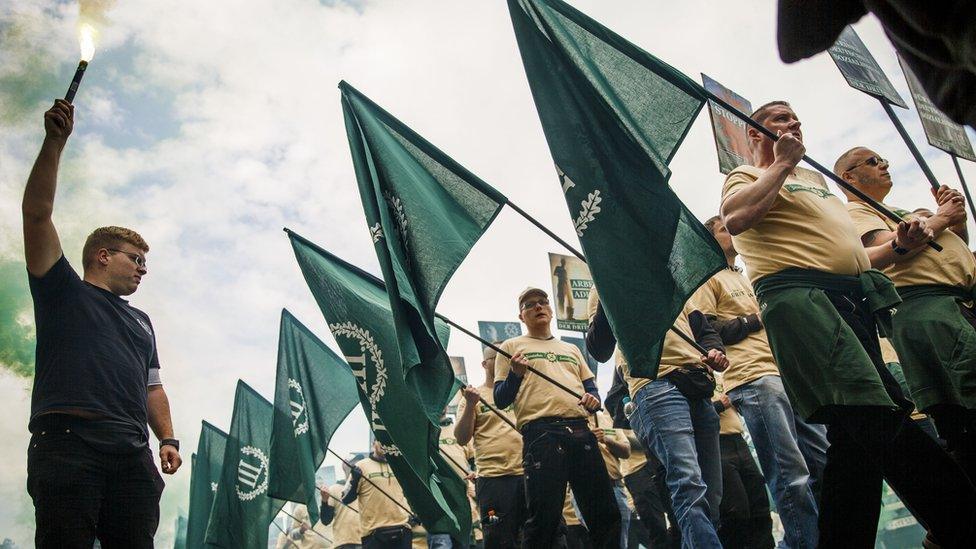Merkel marks Hitler assassination attempt with anti-extremism appeal
- Published
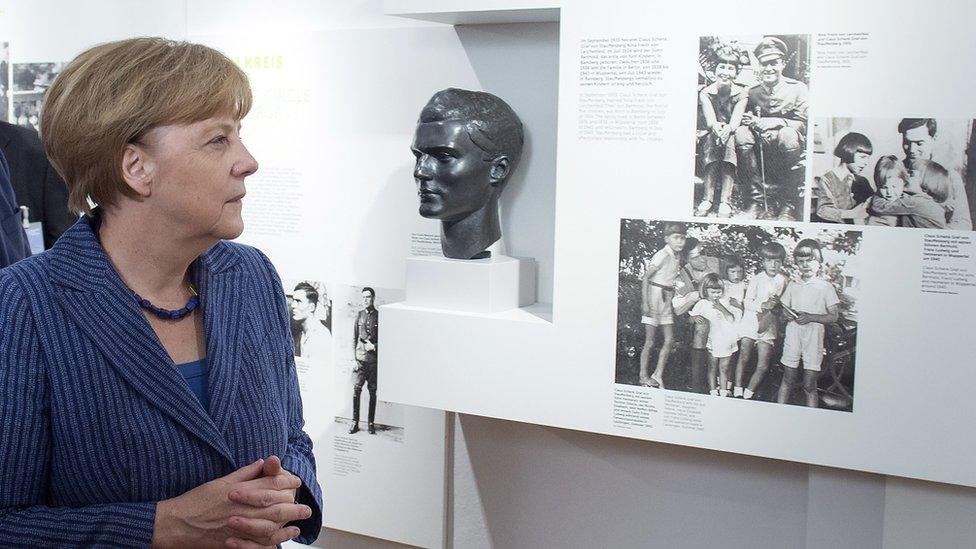
Angela Merkel visited an exhibit in Berlin in July on anti-Nazi conspirator Claus von Stauffenberg
German Chancellor Angela Markel has used the 75th anniversary of the most famous plot to assassinate Adolf Hitler to call on citizens to counter rising right-wing extremism.
Ms Merkel thanked the German officer, Claus von Stauffenberg, and other plotters who tried in 1944 to kill the Nazi dictator with a briefcase bomb.
Stauffenberg and some 200 co-conspirators were caught and executed.
Mrs Merkel urged people to join programmes for strengthening democracy.
"This day is a reminder to us, not only of those who acted on July 20, but also of everyone who stood up against Nazi rule," she said in her weekly video podcast.
"We are likewise obliged today to oppose all tendencies that seek to destroy democracy. That includes right-wing extremism."
The right-wing party Alternative for Germany in May became the country's largest opposition party in parliament with an anti-immigrant and nationalist agenda.
In recent years there has been a rise in far-right attacks, including the murder of a German politician, whose death prosecutors believe was politically motivated and carried out by assassins with neo-Nazi extremist links.
According to government figures, there are 24,000 right-wing extremists in Germany. Nearly 13,000 are believed to have a tendency to violence.
Who was Claus von Stauffenberg?
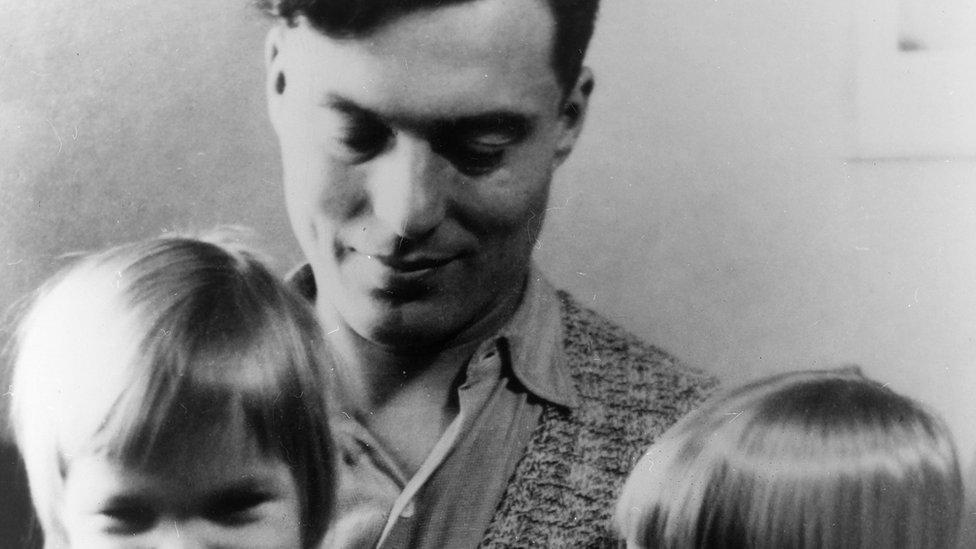
Count Claus von Stauffenberg pictured with his children in 1940
The German colonel was 36 years old when he tried to kill Adolf Hilter during a meeting at the Nazi leader's secret headquarters - called the Wolf's Lair - in a forest in East Prussia.
Hitler survived the assassination attempt with minor injuries after someone had moved the bomb, concealed in a briefcase, next to a heavy table leg, deflecting much of the explosion.
Stauffenberg and his co-conspirators were branded as cowards and traitors, and executed within hours. Their plot to seize control of the regime and make peace with Western allies to end World War II went relatively unrecognised for decades.
The plot, known as Operation Valkyrie, came back to prominence with the 2008 film of the same name, starring Tom Cruise as the former count attempting to over-throw Hitler's Nazi regime.
- Published14 July 2019
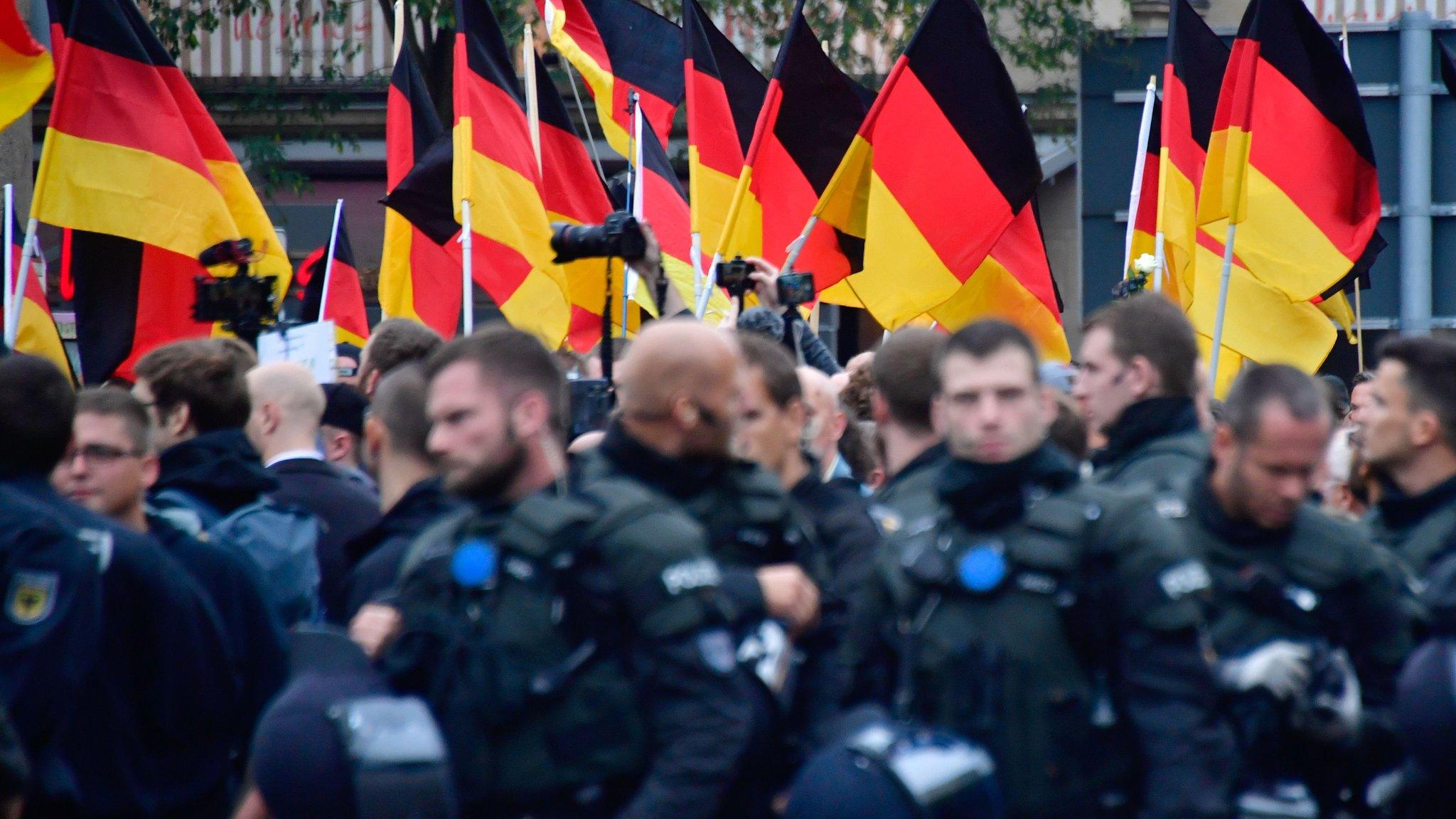
- Published13 November 2019
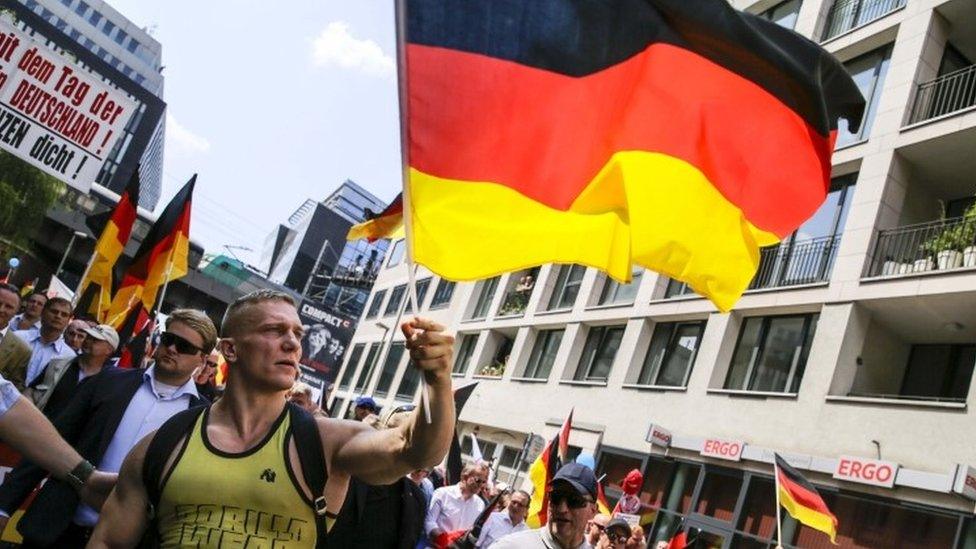
- Published31 January 2017
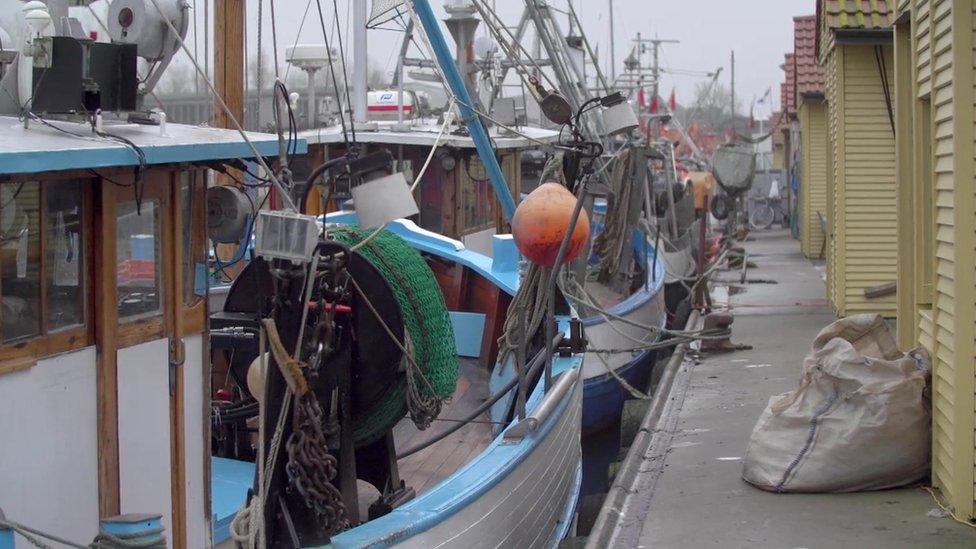
- Published20 July 2014
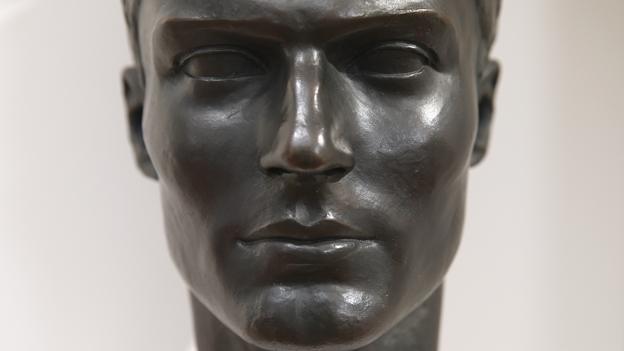
- Published9 May 2019
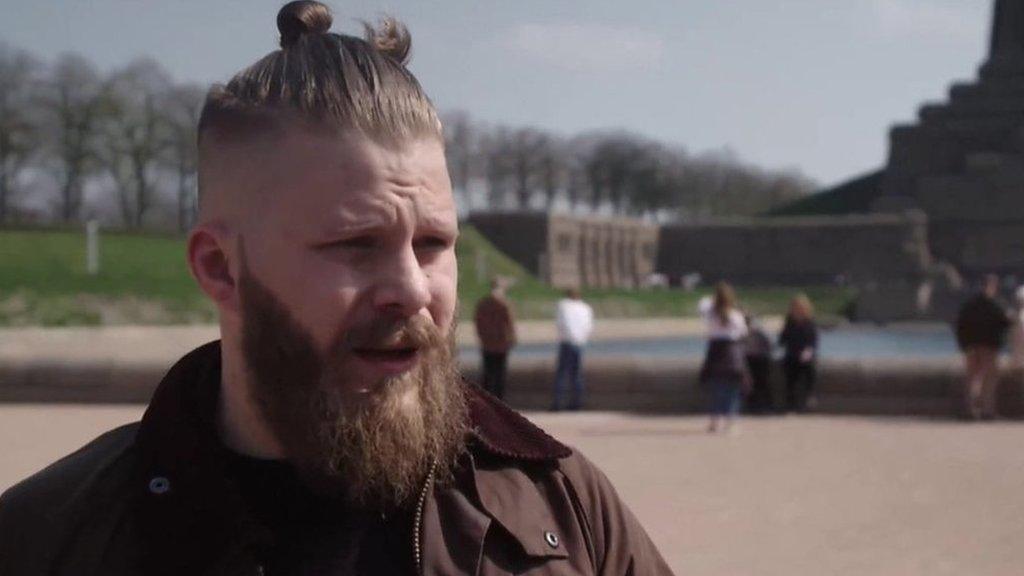
- Published23 June 2019
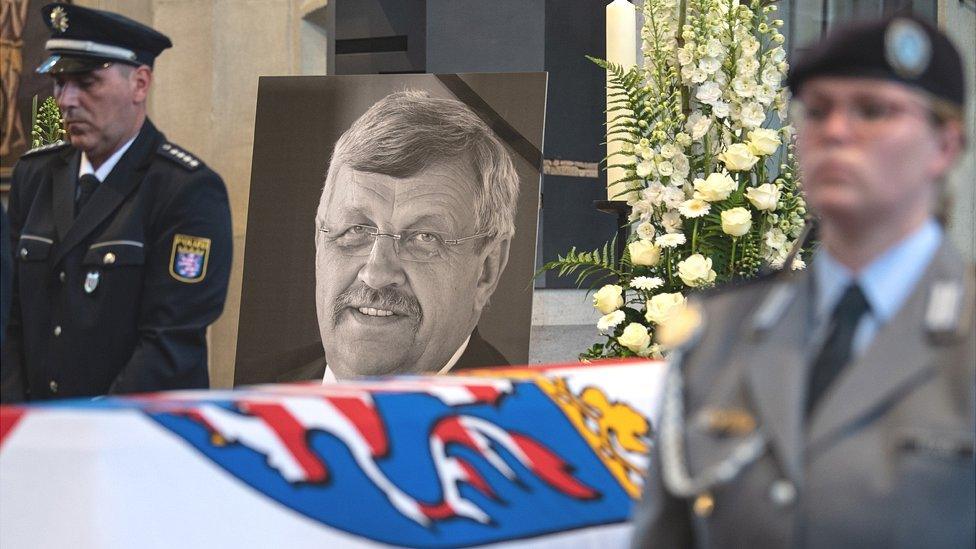
- Published3 May 2019
